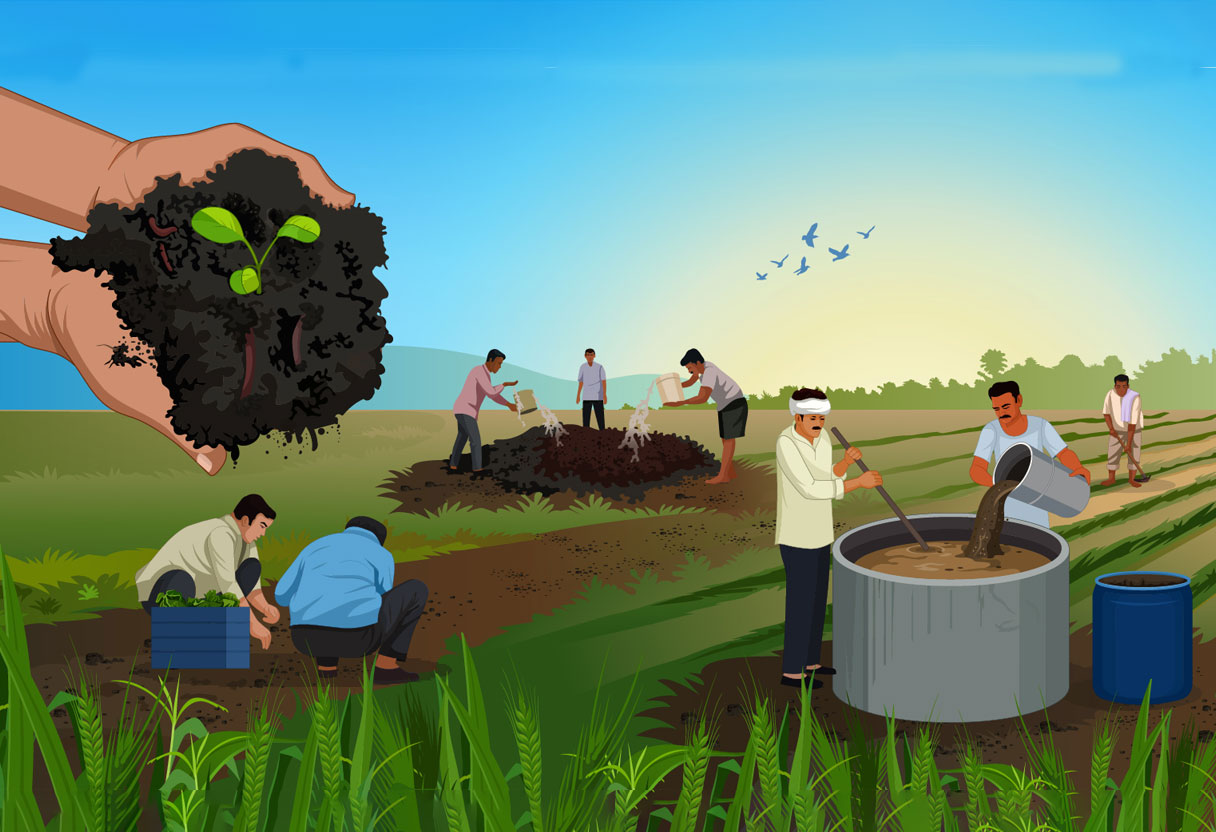Introduction
Natural farming, an age-old agricultural practice, is gaining renewed attention as a sustainable and eco-friendly alternative to conventional farming methods. By working in harmony with nature, natural farming promotes soil health, biodiversity, and resilience, ultimately leading to healthier crops and a more sustainable environment.
What is Natural Farming?
Natural farming, also known as organic or ecological farming, is a holistic approach to agriculture that avoids synthetic chemicals and fertilizers. Instead, it relies on natural processes and inputs to enhance soil fertility and plant health. This method emphasizes the use of compost, green manure, crop rotation, and biological pest control to maintain a balanced ecosystem.
Benefits of Natural Farming
- Environmental Sustainability: Natural farming reduces the reliance on chemical inputs, thereby minimizing pollution and conserving natural resources. It enhances soil structure and fertility, promotes biodiversity, and reduces the carbon footprint of agricultural practices.
- Healthier Produce: Crops grown through natural farming methods are free from harmful chemicals, making them healthier and safer for consumption. They often have higher nutritional value compared to conventionally grown produce.
- Economic Viability: Natural farming can be cost-effective for farmers as it reduces the need for expensive chemical inputs. Additionally, the growing demand for organic products can provide farmers with better market opportunities and higher prices for their produce.
- Resilience to Climate Change: Natural farming practices enhance soil health and biodiversity, making agricultural systems more resilient to climate change. Healthy soils can better retain water and nutrients, reducing the impact of extreme weather events such as droughts and floods.
Natural Farming Techniques
- Composting: Using organic waste materials to create nutrient-rich compost that improves soil fertility and structure.
- Crop Rotation: Growing different crops in succession on the same land to prevent soil depletion, reduce pests and diseases, and improve soil health.
- Green Manure: Growing cover crops that are later incorporated into the soil to add organic matter and nutrients.
- Biological Pest Control: Utilizing natural predators, beneficial insects, and plant-based repellents to manage pests without harmful chemicals.
- Mulching: Applying organic or inorganic materials to the soil surface to conserve moisture, regulate soil temperature, and suppress weeds.
Case Study: Natural Farming in Odisha
Odisha, a state in eastern India, has seen a growing interest in natural farming. Many farmers have adopted natural farming techniques to combat soil degradation and improve crop yields. The government and various NGOs are supporting these efforts through training programs, subsidies, and awareness campaigns.
One successful example is the implementation of System of Rice Intensification (SRI) in Odisha, which focuses on improving rice productivity through natural farming methods. This approach has led to significant increases in rice yields, reduced water usage, and improved soil health.
Challenges and the Way Forward
While natural farming offers numerous benefits, it also presents challenges such as the need for knowledge and training, initial lower yields, and market access for organic products. To overcome these challenges, it is essential to:
- Provide farmers with training and resources on natural farming techniques.
- Develop strong market linkages for organic produce.
- Implement supportive policies and incentives for farmers practicing natural farming.
- Promote research and innovation in natural farming methods.
Conclusion
Natural farming represents a sustainable and healthy way forward for agriculture. By embracing these practices, we can create a more resilient and environmentally friendly food system that benefits both farmers and consumers. As more farmers and communities recognize the value of natural farming, we move closer to achieving a sustainable future for all.








Leave a Reply